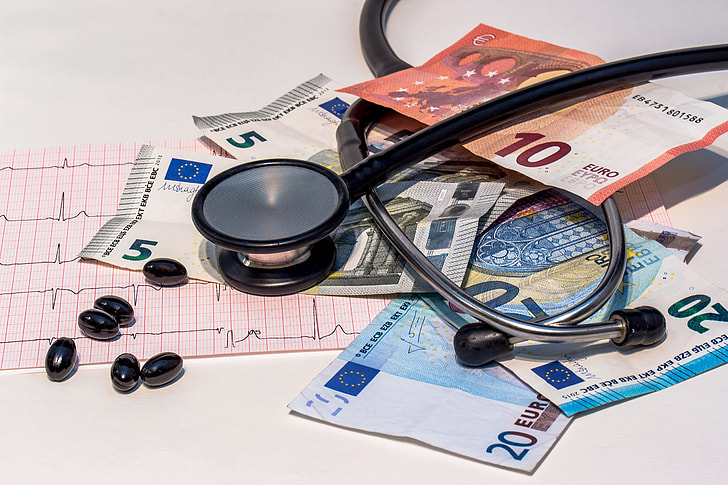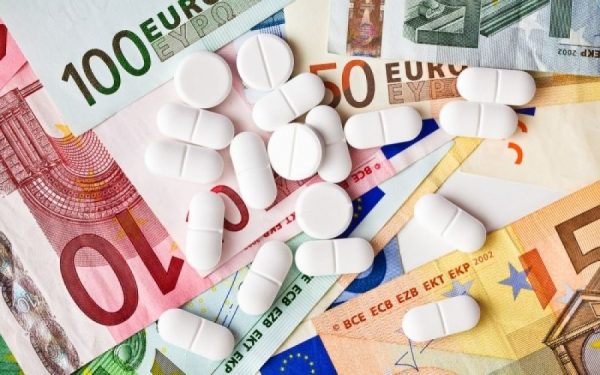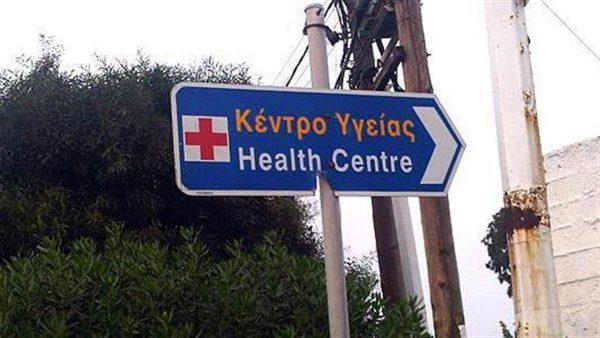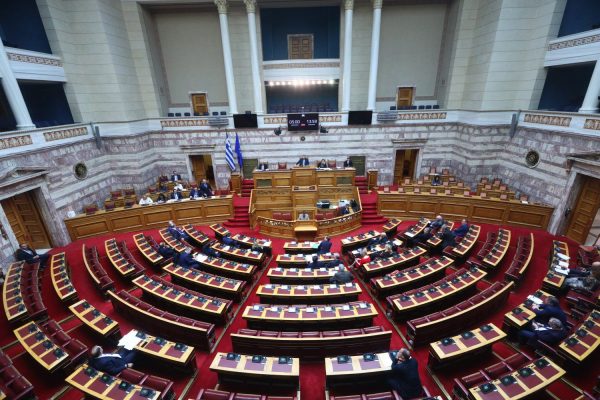
The three crises that began in 2009 and continue to this day brought to the Greeks a tripling of household impoverishment, catastrophic costs and unmet medical needs: the economic crisis, the health crisis of the pandemic and the energy crisis.
In fact, Greece shows the strongest economic inequalities, as the poor cannot meet their health needs at a rate of 17%.
47% of the pharmaceutical expenditure covers the clawback.
Greeks get sick more because health resources are not enough
Although there is sufficient patient access to health services and especially medicine, patients put their hands deep in their pockets to buy their care, due to the reduced public funding of the system.
The gap between Greece and other European countries in terms of public funding reaches three percentage points of GDP, as Greece allocates 6% of GDP to health, while other European countries allocated 8% of their GDP and recently proceeded to further strengthen their funding.
The result of this is that Greeks pay three times more private costs compared to other Europeans directly out of their own pockets and not through private insurance which covers only 12-13% of costs. Direct payments amounting to 5.5 billion the Greeks paid when EOPYY paid 5.3 billion. euro.
These figures, which come from a study of 52,000 households and 126,000 people, were reported by the Professor of Health Economics and Director of the MBA program at the University of Athens Yannis Yfantopoulos speaking at the two-day conference of the Hellenic Patients’ Association. 
Household impoverishment
The professor pointed out that in the 20 years 2000-2020, household spending decreased by 32% due to the financial crisis, and their spending on medicine increased by 38% along with the overall increase in health spending.
This fact caused impoverishment, which initially affected 8% of households and then tripled to 24%, while catastrophic expenditure also tripled.
Accordingly, unmet medical needs among people over 50, from 9.8% in 2004, also tripled to 27.8%.
In total, the unmet medical needs tripled by 2016, reaching 16-17%, and have now decreased to 6.7%, when in the E.U. were limited to 1% and remain at the same level.
Greece is queen of inequalities
Speaking about inequalities, Mr. Yfantopoulos said that Greece is the prefect of health inequalities, as the rich Greeks have uncovered medical needs at a rate of 0.7% compared to 1.2% of the rich Europeans, while the poor Greeks present the greatest unmet health needs with rate of 17%.
In conclusion, the professor emphasized that due to the underfunding of the system, the pharmaceutical expenditure in our country reaches 2.5% of GDP compared to 1-1.5% of GDP in other countries. 
The pockets of patients
In the same discussion, the deputy secretary of the Greek Patients’ Union, Vasso Vakuftsi, underlined that for their proper care, patients are forced to pay very high costs themselves – depending on their condition – in order to cover tests and medicines that are not supported by the social insurance.
For his part, the president of the Federation of Pharmacists’ Cooperatives of Greece, Vassilis Birlirakis, spoke about the demographic problem, saying that every year a city of 60,000 inhabitants is lost from our country with the ratio of deaths and births that prevails, and at the same time, one in four adults suffers from certain diseases condition.
For medicines, the state currently pays less than 50%, when before the crisis its participation was 85-90%, and patients now pay 15%, while before the crisis they paid 9% as participation. In addition, however, materials and medicines have been excluded from the compensation.
Mr. Birlirakis concluded by pointing out that pharmacists can make a decisive contribution to strengthening prevention in Greece, with vaccination and counseling on smoking cessation and weight management.
Skyrocketing spending
On the part of national health organization EOPYY, the administrator Theano Karpodini referred to the controls of the Organization to ensure that there is no artificial demand for health services and waste of resources for the care of patients, while she emphasized that in order to avoid waiting for patients to access health services, it has been partnership with the private health sector.
However, she pointed out that there is still significant waste, as many times health services are used outside of indications to meet needs. The most obvious example of this situation is the off-label use of drugs that has led to skyrocketing costs.
Latest News

Everything to Know about Store Hours this Holiday Season
Stores and supermarkets across the country are operating extended hours, offering ample opportunities for holiday shopping

Greece Prepares for State Budget Vote as Debate Reaches Final Stages
Prime Minister Kyriakos Mitsotakis is expected to deliver his remarks late in the evening, shortly before the decisive vote that will conclude the session

DM Dendias: We talk With Turkey But We Always Bring Up Their Unacceptable Positions
Second and last day of closely watched conference, entitled 'Metapolitefsi 1974-2024: 50 Years of Greek Foreign Policy', also included appearances by PM Mitsotakis, Ex-PM Tsipras and PASOK leader Nikos Androulakis, among others

Rhodes Airport Tops Fraport Greece’s Regional Airports in 2024 Performance
According to Fraport's data, more than 35 million passengers (specifically 35.2 million) were handled by Fraport-managed airports during the 11 months.

European Central Bank Cuts Interest Rates by 25 Basis Points
It is the fourth cut of interest rates by Europe’s central bank, a move expected by the markets and financial analysts leading to the rate settling at 3%.

Airbnb: New Measures Add €600 in Extra Costs for Property Owners
Property managers face an immediate administrative fine of 5,000 euros if access to the inspected property is denied or any of the specified requirements are not met.

Economist: Greece Included in the Best Performing Economies in 2024
Meanwhile, Northern European countries disappoint, with sluggish performances from the United Kingdom and Germany.

EasyJet Expands Its Routes from Athens
The airline’s two new routes will be to London Luton and Alicante and they will commence in summer 2025.

Capital Link Forum Highlights Greece’s Economic Resurgence; Honors BoG Gov Stournaras
Capital Link Hellenic Leadership Award recipient, Bank of Greece Gov. Yannis Stournaras, an ex-FinMin, was lauded for his pivotal role during Greece’s economic recovery

Tourist Spending in Greece Up by 14%, Visa Card Analysis Shows
Greece’s capital Athens emerged as the most popular destination, recording a 17% increase in transactions with Visa cards, surpassing even the cosmopolitan island of Mykonos.



![Φυσικό αέριο: Δυναμικό come back του LNG στην Ελλάδα [γραφήματα]](https://www.ot.gr/wp-content/uploads/2023/01/OT_naturalgas-90x90.jpeg)











![Fraport: Πάνω από 35 εκατ. επιβάτες στα αεροδρόμια το 11μηνο – Πτώση στη Μύκονο [πίνακας]](https://www.ot.gr/wp-content/uploads/2022/06/fraport-90x90.jpg)










![Χριστουγεννιάτικο τραπέζι: Ακριβότερο φέτος κατά 10% σε σχέση με το 2023 [πίνακας]](https://www.ot.gr/wp-content/uploads/2022/12/xristoygenniatikotra-600x399.jpg)















 Αριθμός Πιστοποίησης Μ.Η.Τ.232433
Αριθμός Πιστοποίησης Μ.Η.Τ.232433